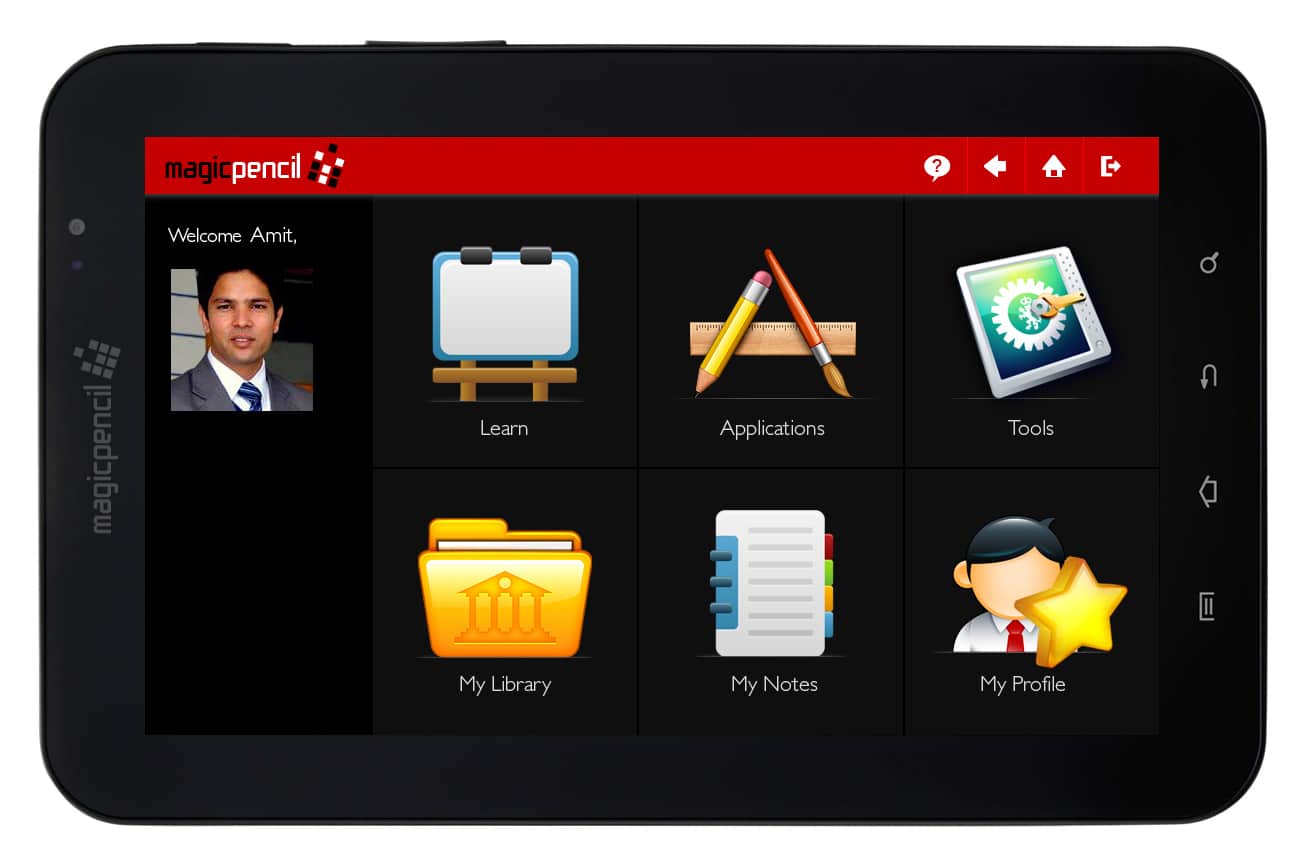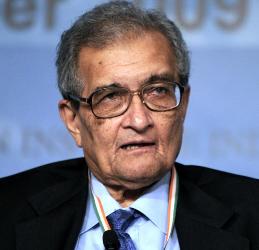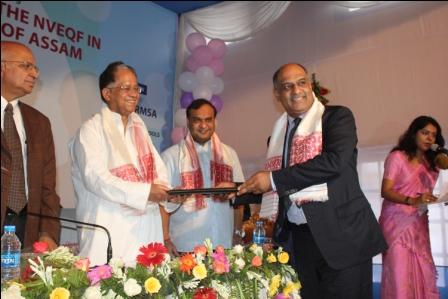 Government of Assam (GoA) and Pearson has announced a joint initiative to provide vocational skills training for young people in schools in Assam. This public-private partnership will serve as a platform for the introduction of the National Vocational Education Qualification Framework (NVEQF), a more ambitious national program to integrate skills, training and qualifications in schools. The GoA-Pearson undertaking is without precedent in India, making Assam a progressive leader in reforming education and learning, to improve employment opportunities for young people.
Government of Assam (GoA) and Pearson has announced a joint initiative to provide vocational skills training for young people in schools in Assam. This public-private partnership will serve as a platform for the introduction of the National Vocational Education Qualification Framework (NVEQF), a more ambitious national program to integrate skills, training and qualifications in schools. The GoA-Pearson undertaking is without precedent in India, making Assam a progressive leader in reforming education and learning, to improve employment opportunities for young people.
Speaking at the launch of the partnership, in Guwahati, Chief Minister of Assam, Shri Tarun Gogoi, said, “I am proud to say that Assam is leading the way in India in preparing today’s generation for tomorrow’s world.”
Under this initiative, Pearson, the world’s largest education enterprise, will set up vocational skills centers in 10 specially-selected government schools, initially offering two training streams, in retail and computer hardware and IT. The design and implementation of the program has seen close collaboration between all stakeholders, from teachers, academic administrators, students, and trainers as well as officials from GoA. The courses will be introduced for students in standard IX in August 2012, before moving into higher classes with a wider portfolio.
Speaking at the launch, Khozem Merchant, President, Pearson India, said, “We are grateful for the opportunity to work collaboratively with GoA. We both obviously believe that young people in Assam deserve to be fully prepared for the challenges of an incredibly different and dynamic world of work and our common endeavor will be to achieve that objective.”
“Vocational education will allow young people to develop rewarding careers in multiple fields in our expanding economy, helping themselves as well as Assam,” said Himanta Biswa Sarma, the Hon’ble Minister for Education at the launch of the first skills delivery centre at Kamrup Academy Higher Secondary School in Guwahati.
Present on the occasion was S Ramadorai, advisor to the Prime Minister on National Skill Development Council, who said, “Vocational education in schools will harness the potential of youth and give them many more avenues for employment as adults.”
The program curriculum will be designed and administered by two Pearson operating companies: IndiaCan, which is one of India’s best-known vocational skills providers, with wide experience of training young people; and Edexcel, the UK’s largest qualification awarding body, recognized the world over for its rigorous accreditation of courses and students.
The skills courses will be held in fully and newly equipped classrooms and learning labs presided over by trainers specially prepared for the program. The curriculum encourages the use of audio-visual aids, and includes lectures by industry experts and visits to factories to familiarize students with real working situations. To ensure no disruption to the formal school day, the skills training will be held after school hours.
 West Bengal Chief Minister Mamata Banerjee said a Private University Bill would be introduced in the assembly within a day or two for setting up higher education institutions by the private sector in the state.
West Bengal Chief Minister Mamata Banerjee said a Private University Bill would be introduced in the assembly within a day or two for setting up higher education institutions by the private sector in the state.







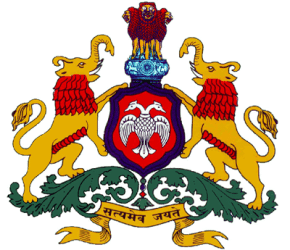

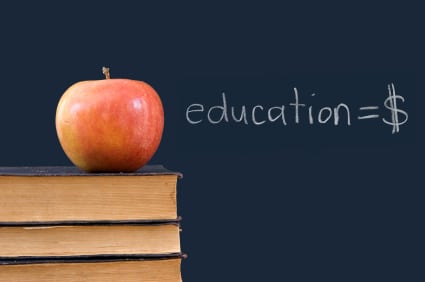


 Government of Assam (GoA) and Pearson has announced a joint initiative to provide vocational skills training for young people in schools in Assam. This public-private partnership will serve as a platform for the introduction of the National Vocational Education Qualification Framework (NVEQF), a more ambitious national program to integrate skills, training and qualifications in schools. The GoA-Pearson undertaking is without precedent in India, making Assam a progressive leader in reforming education and learning, to improve employment opportunities for young people.
Government of Assam (GoA) and Pearson has announced a joint initiative to provide vocational skills training for young people in schools in Assam. This public-private partnership will serve as a platform for the introduction of the National Vocational Education Qualification Framework (NVEQF), a more ambitious national program to integrate skills, training and qualifications in schools. The GoA-Pearson undertaking is without precedent in India, making Assam a progressive leader in reforming education and learning, to improve employment opportunities for young people.
 Punjabi Academy, an academy which was formulated with a view to promote and revive consciousness about Punjabi culture and literature, has announced its “Annual Literary Awards” for the year 2011. The Awards were announced by the Award Committee of the Punjabi Academy with the approval of its Chairperson, Shiela Dixit, Chief Minister, Delhi.
Punjabi Academy, an academy which was formulated with a view to promote and revive consciousness about Punjabi culture and literature, has announced its “Annual Literary Awards” for the year 2011. The Awards were announced by the Award Committee of the Punjabi Academy with the approval of its Chairperson, Shiela Dixit, Chief Minister, Delhi.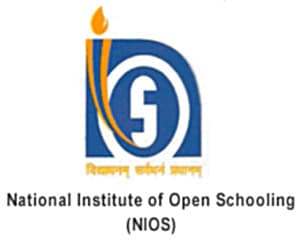
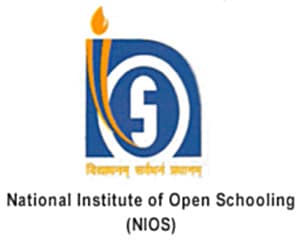 Mukta Vidya Vani, a pioneering initiative of the National Institute of Open Schooling, (NIOS) for using Streaming Audio for educational purposes, was inaugurated by the Union Minister of Human Resource Development, Shri Kapil Sibal , on the occasion of the 22nd General Body Meeting of the NOS Society.
Mukta Vidya Vani, a pioneering initiative of the National Institute of Open Schooling, (NIOS) for using Streaming Audio for educational purposes, was inaugurated by the Union Minister of Human Resource Development, Shri Kapil Sibal , on the occasion of the 22nd General Body Meeting of the NOS Society.
 Google has introduced a comprehensive training program for young professionals in India in alliance with NIIT Limited. The programme ‘Google Web Academy’ aims to bridge the digital skill gap in the country and help students and professionals capitalize on the emerging job market for the online industry. Under the initiative, NIIT will be Google’s first partner to offer specialised courses through its centres across the country.
Google has introduced a comprehensive training program for young professionals in India in alliance with NIIT Limited. The programme ‘Google Web Academy’ aims to bridge the digital skill gap in the country and help students and professionals capitalize on the emerging job market for the online industry. Under the initiative, NIIT will be Google’s first partner to offer specialised courses through its centres across the country.